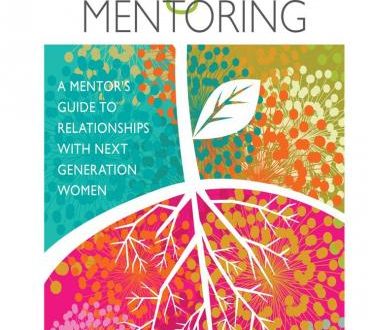Living Christianly in a Post-Christian Culture
This past weekend at the Christian Book Expo in Dallas, I attended a panel discussion with Donald Miller, Randy Frazee, Mary DeMuth, and Ruth Haley Barton. Andy Crouch moderated this discussion, "Living Christianly in a Post-Christian Culture."
As you can imagine with such a broad topic, the conversation ran the gamut. I’d like to highlight a few points here.
1. All of the authors/speakers agree that we do not, in fact, live in a post-Christian culture. Mary DeMuth, who lived in France for several years planting churches, said that in France, when she mentioned Jesus Christ, the French had no narrative to put behind that name. In the States, while the Americans may not be Christians, they understand the narrative that goes with Jesus. Donald Miller argued that most of the time, when we say we live in a post-Christian society, we mean Christians have lost power in this society. He went on to clarify, though, that while he doesn’t think we live in a post-Christian society, our Christianity is pagan, which brings me to my next point.
(Side note: I don’t find it helpful to discuss cultures as Christian or not. While we, as Christians, work alongside the Holy Spirit to transform culture to reflect Christ–not to become the Christian culture–we cannot impose the same definition of Christianity on a culture that we can on a person. Because of this, definitions as to what makes a culture Christian or not vary.)
2. Our Christianity is pagan and looks more like voodoo than it does the Christianity of the Bible. Following American materialism, our Christianity has become consumerism. Have an unhappy, uncontented life? Consume some Jesus. This Jesus brand infects our Christian life and our evangelism. (What would happen, Miller asked, if we presented the gospel in this way: Well, it’s early followers were hung upside down, stoned, bitten by snakes, beaten, and tortured. Care to join us?)
(Side note 2: Several books on the market address this, such as Brand Jesus: Christianity in a Consumerist Age by Tyler Wigg Stevenson, Franchising McChurch: Feeding Our Obsession with Easy Christianity by Thomas White, and Deliver Us from MeVille by David Zimmerman.)
Related to this, Ruth Haley Barton talked about our unevaluated, broadscale acceptance of technology. Hooked up to the Internet and our cell phones, we’ve lost the discipline of silence and solitiude. Beepings and ringings interrupt our conversations. None of the speakers argued for the opposite (broadscale rejection of technology) but for an approach that discerns how technology affects our lives. Randy Frazee pointed out that the problem with Facebook, for example, is that the more we commit to it, the less we engage in tangible, human-contact community. And this brings me to my final point.
3. Christians should reclaim the lost art of community. Community has become a buzz-word, but let me point out two things from this particular panel. First, Frazee clarified that our community needs to be Christian. It’s not a small group that meets once a week in a basement of the church. It encompasses everything we do, including evangelism. It’s geographical: We can call one another last minute and say, "Hey, come over for dinner tonight." It’s uncomfortable at times: You expose yourself and commit when it’s inconvenient.
Second, Christian community draws in unbelievers. Frazee and Miller both addressed the problem with the separation of community and evangelism. The unbelievers don’t see us loving on each other because that happens in a different space. We need to invite them into our communities and lives. (Bill Hull also talks about this in Choose the Life: Exploring a Faith that Embraces Discipleship.)
I enjoyed the panel and continue to mull over the topics discussed.



8 Comments
Mark Deneen
Christ-ian Relevancy
As a non-Christian, here is what I observe about Christianity in America, and why I do hope we are in a post-Christian era.
They don’t act anything like Christ. In a nutshell, that’s what does it for me. Jesus was a revolutionary, not an an upholder of the Establishment status quo. He wanted humans to come to a radical new understanding of what it is to be alive and intimately connected to every other human, and all that is in the cosmos. If alive today, he be far more likely to be branded a Marxist or Communist than a “neo-con.”
American Christians – the only ones I can really observe – are obsessed with political power and material greatness. They have become the entrenched Establishment in a corrupt materialistic, non-spiritual society. They have become “The Man” in street parlance.
I doubt American Christians would recognize Jesus if he were among you now. Sorry, he wouldn’t be parading around in an Armani suit with a Rolex watch and a diamond pinky ring. Sorry, he would not be on TV begging for money to build big glass churches. Sorry, he wouldn’t be at the end of a bullhorn yelling “Faggot!!”.
Jesus the profound Teacher was an amazing figure with so much to give. Jesus as represented by modern Christian preachers is simply uninviting.
I wish you all happiness in your spiritual walk.
Heather A. Goodman
Thank you for your
Thank you for your observations, Mark. I agree with a lot of your comments. We often don’t act as Christ would have us act, partly because we’re still sinners on a journey, and partly because we prefer our selfish, comfortable lives to following the hard life of Christ. And as we attempt to live our Christianity, we have the habit of tying Christ to one culture or another. I believe Christ can transform any culture to have that peace and harmony between one another and the earth as we enter into God’s peace, but I don’t think that means he is limited to one culture (such as Enlightenment or Marxism).
I will say that, unfortunately, the picture of Christianity often comes more from media than everyday Christians, and this portrays a distorted picture, both because the media likes extremes (not just in Christianity) and because the Christians in the media, motivated by selfish ambition, seek the attention of the media. Most Christians I know seek to love God and their neighbor, serving in simple, unnoticed ways.
I wish you the best as well.
Gwynne Johnson
Sadly some accurate observations!
I regret that the face of Christianity especially to observers like Mark appears as he has described it.
Mary DeMuth
Salt and Light
Heather, thanks for writing this blurb about the panel. I appreciate your words here. I still find myself thinking about how we’ve incentivised and packaged Christianity as if it were a product. And I’ve thought more about staying quiet and contemplative as Ruth pointed out.
What I loved was the way “Table spirituality” came to the forefront. I never thought it would be a radical thing to have dinner around a table every night (and invite others in). This has deepened my verve in doing this. It seems like so little, but my kids love it.
Heather A. Goodman
I grew up around the kitchen
I grew up around the kitchen table–dinners together were a priority in our family. Chris and I agree that when the time comes, we want to raise our kids the same way. I love how you and Randy tie this together with the wedding feast in the end, the Eucharist meal, the breaking of bread throughout Scripture. Chris and I share meals with friends the majority of our evenings. This is where friendships are forged, over a god meal and a good glass of wine. Jesus made an ordinary meal–bread and wine–and infused it with the sacred. I don’t think we should limit that sacred to Sunday morning. It’s part of our everyday life.
Macken
The life style & culture of
The life style & culture of Christians has changed,but the mentality & atmosphere has also changed.We can’t blame the new generations because we started the new system of living & grew them in this situation,so the mentality has changed but do they forget lord ?No definitely.
Macken,
petsafe invisible fence
Missy
Kudos for this blog. I think
Kudos for this blog. I think your article was extremely riveting. I will drop by again in the near future.
kitchenaid 600
quick casino reviews
Every society has a
Every society has a mainstream culture, several subcultures or underground cultures, and, rarely, even a counterculture.subculture may be considered alternative or underground depending on how opposed it is to the mainstream culture.so thanks to give this nice advice and views so its interesting and great.i appreciate yo your efforts.